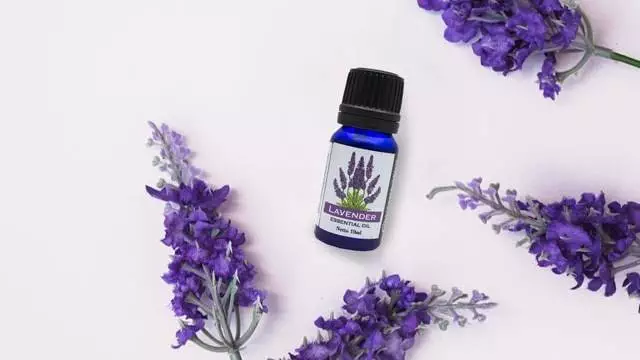

Lavender oil is a calming, sedative and antidepressant essential oil that helps improve mood, relieve stress and promote sleep. Inhaling lavender vapors, applying it topically or using a hot compress infused with the oil can help soothe the nervous system.
Lavender oil also works as an effective painkiller. It helps reduce the intensity of pain by stimulating the production of neurotransmitters that help regulate pain signals.
Calming
Lavender oil is a soothing and relaxing aromatherapy essential that helps with a wide range of health issues. It is a natural sleep aid, a remedy for anxiety and has antidepressant properties that can reduce stress and improve your mood.
The most common way to use lavender essential oil is with a diffuser, which disperses the scent into the air. You can also apply it topically, diluted with a carrier oil such as shea butter or jojoba oil.
It is also helpful for preventing sunburns on the skin and healing chapped lips. Dilute a few drops of lavender oil in shea butter or another “carrier oil” and rub it on your face before going out in the sun.
Lavender oil is also effective for treating insect bites, as it helps ward off bacteria and relieves the itching and swelling associated with these skin problems. It can also promote wound healing, assisting with collagen production and increasing the activity of proteins that rebuild tissue.
Anti-septic
Among the many benefits of lavender oil, it’s been found to be particularly effective against a range of bacteria. It has been shown to be a good alternative to antibiotics and can help fend off yeast infections, athlete’s foot, and ringworm, preventing their development in the first place.
It can also help relieve pain caused by a wide variety of injuries and medical conditions, such as sprains, strains, bruises, rashes, and sore muscles. It has also been found to lower blood pressure and promote general mental well-being.
There are a number of different ways to use lavender essential oil to help with these problems, from using it as a bathing agent and massage oil to applying it topically to the skin. It can be combined with other essential oils to create a mixture for specific needs.
When shopping for an essential oil, choose one that’s Certified USDA Organic, non-GMO and free of synthetic fragrances. You should also look for a product in a dark colored glass bottle to prevent it from degrading over time and keep it fresh.
Anti-spasmodic
Lavender oil is widely used for a variety of therapeutic purposes. It is effective in treating various health problems, including alopecia areata (hair loss), digestive disorders and respiratory conditions such as spasms in the throat.
In addition, lavender oil has anti-spasmodic properties that help prevent spasms and coughing fits in the chest area. It is also useful for reducing inflammation in the stomach and intestines.
There is evidence that lavender essential oil is beneficial for a variety of neurological conditions, including anxiety, depression and insomnia. It can also be beneficial in the treatment of migraines and other headaches.
Aside from calming and relaxing, it can also be used for muscle pain and cramps. It can be mixed with a carrier oil and massaged onto the affected areas to relieve pain and tension.
The anti-spasmodic properties of lavender oil can be further enhanced by using it in conjunction with other essential oils. For example, a mixture of chamomile, marjoram and lavender essential oils can be useful for alleviating menstrual migraines.
In addition to antispasmodic properties, lavender oil has antioxidant and neuroprotective effects as well. It has been shown to diminish glutamate-induced neurotoxicity in rat pups cerebellar granular cell cultures. It is also reported to inhibit convulsion induced by pentylenetetrazol, nicotine or electroshock in mice.
Anti-inflammatory
Lavender oil has anti-inflammatory properties, which make it useful for treating skin conditions like eczema, psoriasis and dermatitis. You can apply it directly to the affected area, or mix it with a carrier oil and use it as a lotion.
In addition, lavender oil is an effective ointment to soothe itchy insect bites and stings. It can also be used to help with burns and wounds. It also has a mild sedative effect, which is helpful in relieving stress and anxiety.
It can also be used to treat hay fever, as it is believed that inhaling lavender can reduce symptoms of this condition. Likewise, it can be mixed with water and used as a steam for aromatherapy.
To soothe inflamed skin, use a few drops of lavender oil, along with a carrier oil like coconut or jojoba. Put it on the affected area twice a day or more to help relieve pain.
Lavender oil is safe to use for most people. However, pregnant and breastfeeding women should consult with a health care professional before using it. It is also not recommended for pre-pubescent boys because it may affect hormone levels.
Anti-depressant
Lavender oil is one of the few natural anti-depressant substances that can deliver a powerful mood boosting effect with none of the side effects of traditional drugs. It also works well for treating sleep disorders, reducing anxiety and improving sleep quality.
A recent meta-analysis found that lavender has a significant anti-depressant effect in patients suffering from depression and/or anxiety. Its sedative and anti-inflammatory effects help reduce stress, which is one of the leading causes of depression.
The main anti-depressant component in lavender is linalool and linalyl acetate, which are both naturally occurring in the plant. Linalool is responsible for the scent, while linalyl acetate has a strong anti-depressant and calming effect on the nervous system.
Inhaling lavender essential oil for a short time has been shown to improve electroencephalogragy activity, alertness and mood in healthy adults. In addition, it has been found to be more effective in reducing depressive symptoms (as measured by Profile of Mood States) than distilled water.
For those who are struggling with clinical depression, ingestible lavender extracts can be taken as a supplement once or twice daily. You can also use lavender aromatherapy in the bath or apply it topically to your skin using a cream or oil diffuser.
Anti-parasitic
Lavender oil is an effective anti-parasitic because it kills parasites and reduces their ability to bind to red blood cells. It also suppresses the number of toxins that they can produce.
A recent study compared essential oils of lemongrass, Roman chamomile, and lavender against Haemonchus contortus, an aphid species that lives in the soil and feeds on human and animal waste. They found that lime, Roman chamomile and lavender were very effective in killing the aphids.
In addition, lavender oil can help treat a variety of other parasites and prevent them from entering your body in the first place. It’s also an excellent way to help rid your skin of blemishes and rashes caused by certain types of parasites.
It’s also a great natural remedy for insect bites and bee stings. Apply a few drops of lavender oil to the affected area to reduce itching, swelling and pain.
It’s also a mild sedative and calming agent, reputed to help reduce feelings of stress that weaken your immune system. It can also aid in promoting deep sleep.
Anti-fungal
Lavender oil is known to be an anti-fungal, making it an effective way to keep a wide range of infections at bay. It can help to eliminate bacteria and acts against certain types of fungi, including athlete’s foot and ringworm.
It can also reduce inflammation and clear up viral infections such as cold sores and warts. It’s also been found to be a good remedy for dandruff and can help stimulate hair growth.
A 2015 test-tube study found that lavender oil has antifungal activity against Candida albicans, which is a common cause of human fungal infections. Its action against fungi also makes it a great option for treating yeast infections.
Several studies have shown that lavender oil helps speed the healing process of burns, cuts and scrapes. In addition, it helps decrease the appearance of scars.
It is recommended that you buy a high-quality essential oil that is made from cold-pressed or steam-distilled flowers and leaves. This ensures that the oils are pure and contain no chemicals that may have been contaminated during the manufacturing process.
